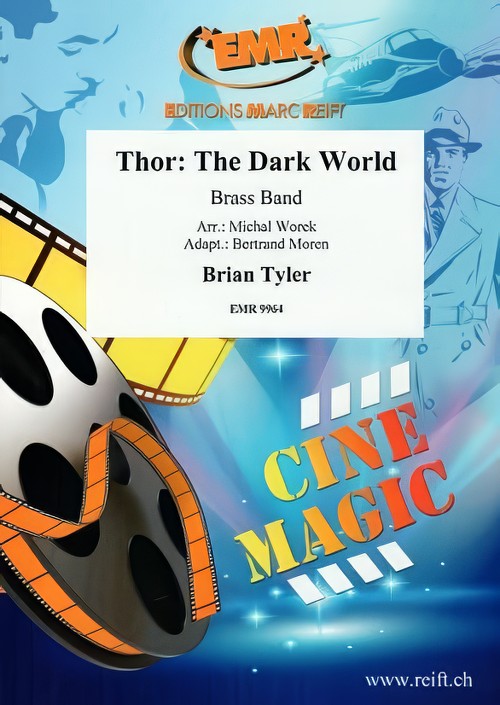We've found 1000 matches for your search. Order by
Results
-
 £47.60
£47.60JOY TO THE WORLD (Kerwin) (Brass Band) - Handel, George Frideric - Kerwin, Simon
Grade: Easy/Medium.
Estimated dispatch 7-14 working days
-
 £38.80
£38.80JUNGE WELT! Young World (Brass Band Marchcard) - Jaeggi, Stephan - Woodfield, Ray
Grade: easy/medium
Estimated dispatch 7-14 working days
-
 £74.95
£74.95NEW WORLD DANCES (Brass Band - Score and Parts) - Ellerby, Martin
Duration: 8:17Includes: Earth Dance; Moon Dance; Sun Dance.Recorded on QPRL085D Vistas
Estimated dispatch 7-14 working days
-
 £37.95
£37.95NEW WORLD DANCES (Brass Band - Score only) - Ellerby, Martin
Duration: 8:17Includes: Earth Dance; Moon Dance; Sun Dance.Recorded on QPRL085D Vistas
Estimated dispatch 7-14 working days
-
 £50.90
£50.90NEW WORLD HYMN, The (Euphonium Solo with Brass Band) - Ratnik, Peter
Grade: Medium.
Estimated dispatch 7-14 working days
-
 £65.00
£65.00NEW WORLD SKETCHES (Brass Band Set - Score and Parts) - Price, Dan
2009 National Championships Area Qualitying Contest - 2nd Section.
Estimated dispatch 7-14 working days
-
 £50.00
£50.00 -
 £50.90
£50.90 -
 £115.00
£115.00Thor: The Dark World (Brass Band - Score and Parts) - Tyler, Brian - Moren & Worek
Includes:Thor: The Dark WorldShadows of LokiEscaping the RealmConvergenceMarvel Studios FanfareDuration: 6.00
Estimated dispatch 7-14 working days
-
 £50.90
£50.90WHAT A WONDERFUL WORLD (Flugel Horn Solo with Brass Band) - Fernie, Alan
Grade: Medium.
Estimated dispatch 7-14 working days
